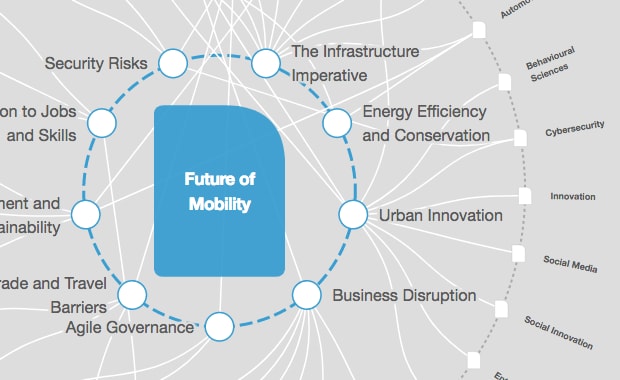How major cities can fight climate change... and make billions

Shared bikes at a bike lane in Wuhan, China Image: REUTERS/Stringer
Implementing green strategies like bike lanes and better building codes could bring 94 world cities a collective $583 billion worth of benefits, while fighting climate change, according to research by a global network of cities.
C40 Cities pinpointed transport, buildings and industry as priorities to be incorporated into climate change policies. Doing so would encourage large investments and avert 223,000 premature deaths, as people live and work longer.
"This research quantifies and provides the business case for what mayors have long known to be true: taking bold climate action also improves public health," C40 executive director Mark Watts said in a statement.
"There is no longer any trade-off for cities between delivering policies that benefit the environment, drive economic growth and improve the health of citizens."
Cities are key in the fight against climate change, according to the World Bank Group's International Finance Corporation (IFC).
More than half the global population lives in cities, which consume over two-thirds of the world's energy, and account for more than 70 percent of all carbon dioxide emissions, the IFC says.
C40 researchers said cities should implement walking, cycling and mass transit policies, introduce stringent emission standards, promote zero-emissions vehicles and establish zero emission areas.
Cities should also adopt strict regulations for new buildings and retrofit older buildings to improving heating, ventilation, air conditioning, water heating and lighting systems, researchers added.
Industry and businesses should use energy efficient technologies. Emissions capturing and maintenance and monitoring are all important if climate goals are to be achieved, they said.
By focusing on green approaches to transport, buildings and industry, cities could reduce greenhouse gas emissions by 87 percent and hazardous airborne pollutants known as PM2.5 by 49 percent, according to the researchers.
"Where the problem lies in terms of emissions, is also where the solution lies," said Milag San Jose-Ballesteros, director for East, Southeast Asia and Oceania at C40 Cities in Singapore.
"It is not mutually exclusive when you talk about low-carbon development and building healthy cities," she told the Thomson Reuters Foundation by phone on Wednesday.
Although many C40 cities have already identified or implemented some of the measures suggested in the report, the three key areas in the research needed to be fully reflected in strategies by 2020 and in place or adopted by 2030, she added.
Don't miss any update on this topic
Create a free account and access your personalized content collection with our latest publications and analyses.
License and Republishing
World Economic Forum articles may be republished in accordance with the Creative Commons Attribution-NonCommercial-NoDerivatives 4.0 International Public License, and in accordance with our Terms of Use.
The views expressed in this article are those of the author alone and not the World Economic Forum.
Stay up to date:
Mobility
Related topics:
Forum Stories newsletter
Bringing you weekly curated insights and analysis on the global issues that matter.
More on Nature and BiodiversitySee all
Federico Cartín Arteaga and Heather Thompson
December 20, 2024







